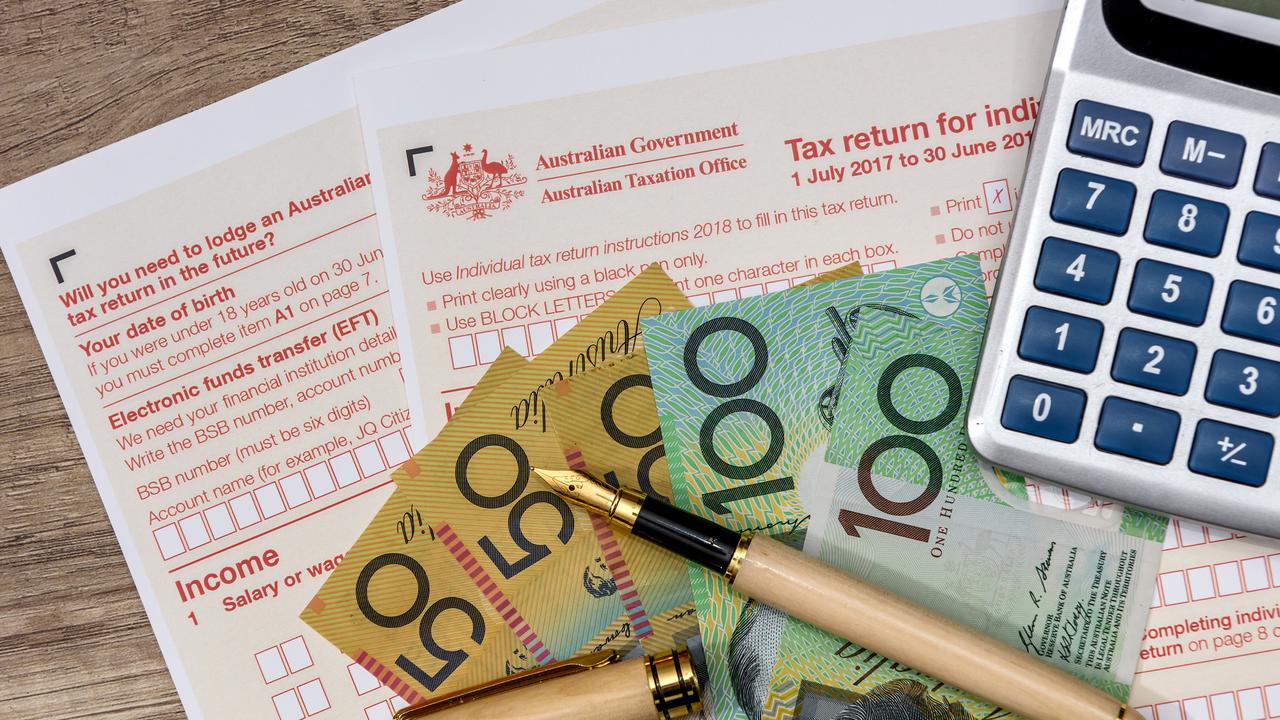ATO reveals biggest tax return mistakes you need to avoid
Cash-strapped Aussies have rushed to file their tax affairs early this year – but if you make this one mistake, it could cost you dearly.
The Australian Taxation Office has revealed the key areas it is cracking down on this year after experiencing the busiest July 1 on record.
With the coronavirus pandemic continuing to squeeze household budgets, the start of the new financial year brought with it a spike in early tax return lodgements along with applications for the COVID-19 early release of superannuation and other government programs.
But the tax office is already noticing a few common mistakes, with assistant commissioner Karen Foat warning taxpayers to be vigilant – or face tough consequences.
“There is one particular thing we’re really focused on this year – of course, we expect working from home claims to go up, but we naturally expect other areas to go down, such as work-related travel and laundry costs,” Ms Foat told news.com.au.
“We will be looking for people who have a really big working from home claim – which might be fine – but who are still claiming a full year’s worth of work-related travel and laundry costs.
“It really does depend on circumstance but we contact over two million people every year about their claims, and that ranges from a little prompt, like ‘this is a bit high, please review’ all the way through to an audit, and the ramifications for doing the wrong thing are wide-ranging.”

RELATED: Read all our tax tips here
Ms Foat said many people made “simple and honest” mistakes that could mean they needed to repay a small amount of cash.
But for those intentionally doing the wrong thing, the repercussions are far more dire.
“If we know someone is deliberately doing the wrong thing, not only will they have to repay tax but there will also be interest on it and there can be penalties of up to 75 per cent of the missing part of the tax they should have paid in the first instance,” she said.
“Further than that, there can be criminal prosecution for people caught fraudulently developing their own supporting documents and things like that.
“We know nobody likes to get a bill from the tax man, especially not well after they have already spent their refund, so it’s best to do the right thing upfront.”
It’s no surprise that this year, it’s working from home claims that are causing the most confusion.
In April, the ATO revealed a special new working from home shortcut method to allow people to claim a rate of 80 cents per hour for all their running expenses, instead of calculating costs for specific running expenses as taxpayers would under normal circumstances.
“If you record the number of hours you have worked from home, it’s quite simple,” Ms Foat said.
“Of course some people want to use one of the other two methods – the actual expense method or the fixed rate method – and the message is if you want to do that it is fine … but you need to follow the guidelines carefully.”
She said one of the biggest issues was taxpayers “double dipping” and claiming multiple methods at the same time.
“We’re seeing a lot of people claim the 80 cents per hour shortcut method but, for example, also claiming depreciation of their laptop at the same period, and you can’t do that,” she said.
“That method takes into account all expenses such as electricity, depreciation, office furniture, stationery, calls and the internet – the lot.
“The other thing is people claiming more hours than it is possible – the 80 cents per hour rate applies from March 1 to the end of the financial year, and some people are claiming more than the total number of hours in that period, more than 24 hours a day, so clearly there is some sort of error.”

RELATED: New dole change allows double-dipping
And as always, there have already been some taxpayers making dodgy claims that have caught the eye of the tax office, such as someone claiming $15,000 in deductions for transporting bulky tools in a Nissan Skyline across dirt roads in the outback – when they were actually using their boss’s ute.
A truck driver also attempted to claim a DNA test when that was “clearly a private expense” while a childcare worker tried to deduct a pair of jeans for Jeans for Genes Day along with other causal clothing.
“When it comes to work-related expenses, the best thing to do is to refer to the three golden rules – you need to have spent the money, it must be for work purposes and not private use, and you need to have records supporting your claim,” Ms Foat said.
Meanwhile, the ATO is also particularly cracking down on the declaration of all rental income, including income from accommodation sharing platforms such as Airbnb.
“We do receive information from those platforms so it is really important to include that income or you can expect to hear from us.”
Ms Foat said it was “absolutely” the biggest July 1 ever for the ATO in terms of a record rush of income tax return lodgements as well as applications for early release of super and other programs being filed, with more than two million tax returns received so far.
And while most people who have accessed their super early have been eligible to do so, a “small number of people” have deliberately accessed it when they shouldn’t.
“The ATO goes much easier on people who come forward themselves, so if you’re reading this and thinking, ‘Actually I’ve done the wrong thing’, it’s always best to reach out to us before we come knocking,” Ms Foat said.
“If you’ve taken it out and you’re not entitled to it, it could be that the amount you’ve got out of your super which is normally tax-free under the COVID-19 early release scheme becomes a taxable payment. There are also penalties of over $12,000, so it will well and truly be worse than if you had not got it out in the first place.”




